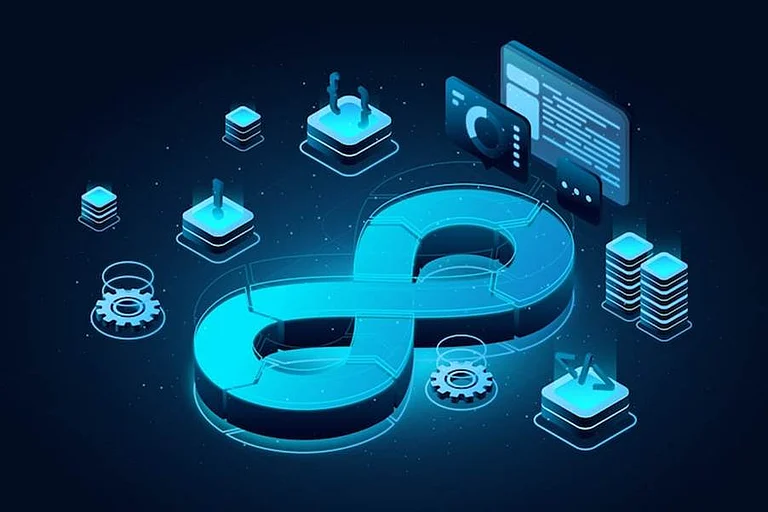In the decreasingly changing period of decentralized technologies, DAOs are reconsidering governance. Unlike institutional or conventional pot form, DAOs are decentralized without central leadership, making opinions grounded on community agreement and smart contracts. But with a leaderless association, it's not easy. The issue is to keep people engaged, motivated to share, and keeping collaborative decision- making effective and indifferent. This is where game proposition comes in, furnishing DAOs with a specific toolkit for easing active engagement, collaboration, and patient community development.
The Participation Problem in DAOs
DAOs hold out the pledge of openness, translucency, and equivalency, but indeed the most auspicious systems must contend with the grim possibility of apathy and advancement. Members may arrive agitated to contribute but ultimately lose interest or believe their solitary vote can not make a difference. Others may be dissuaded from contributing because of sophisticated governance proffers or the time- consuming aspect of staying fully up to speed. When participation situations fall, DAOs threat recession or preemption by a oral nonage which contradicts the very foundation they're created on.
This governance prostration is n't specific to DAOs. Mainstream popular processes far and wide generally grapple with dropped namer turnouts and political apathy. But DAOs retain one decisive advantage they live in programmable digital surroundings where impulses can be drafted and modified in real time. This provides the eventuality for game proposition to turn unresistant groups into vibrant, participatory communities.
Game proposition The Science Behind Engagement
At its simplest, game proposition examines how people make choices within systems in which their choices impact and are impacted by — others' choices. In DAOs, each governance vote, offer, or debate constitutes a game in which members are players juggling particular interests, collaborative interest, and implicit threat.
By precisely casting these" games," DAOs can invite individualities to engage in actions that both match particular impulses and advance the association's general charge. Rather than trusting in goodwill or volunteerism alone, DAOs can organize systems where productive engagement is the most logical and fulfilling option.
For illustration, certain DAOs organize governance similar that members admit further sway or prestige for regular attendance. Others award considered confabulation, offer jotting, or guidance of newer members, making community participation a prized and delightful bid. The trick is making participation precious and intriguing.
Turning Governance Into a Game
Gamification — the use of game design principles outside of games — enables DAOs to construct living governance models that are less regulatory duty and further engaging, satisfying gests . This does not equate to governance getting a silly videotape game but is rather employed through the objectification of aspects similar as play- as- followership systems, situations of experience, cooperative searches, or time- grounded challenges used to intoxicate participation.
For case, some DAOs produce tiered character systems where members make up trust and power through repeated donation. As members lift these species, they gain access to further liabilities or rights, conducting a sense of advancement and accomplishment. Others may structure seasonal cycles of governance in which proffers are considered in competitive rounds of evaluation, leading members to submit high- quality ideas and promote good debate.
Time- limited decision windows may introduce urgency, and peer- review mechanisms may encourage cooperation rather than competition. Indeed social prestige — introductory colophons, public recognition, or leadership positions — can explosively encourage members to remain active and interested in the success of the DAO.
Avoiding the risks ofOver-Gamification
While game proposition and gamification offer important tools, DAOs must traipse precisely to avoid turning governance into a fashionability contest or incentivizing geste that prioritizes short- term earnings over long- term stability. inadequately designed price systems can lead to bounce manipulation, sets, or strategic geste that undermines collaborative pretensions.
Sustainable gamified governance depends on constant review, openness, and responsiveness. DAOs must have in place mechanisms to avoid gaming the system yet promote honest, considerate participation. Well- balanced impulses, transparent rules, and community monitoring insure that the" game" stays responsive to the DAO's charge and values.
The Future of Decentralized Decision- Making
As DAOs evolve, incorporating game proposition into governance armature is likely to come decreasingly complex. Machine literacy and data analysis may help in tweaking incitement structures, and continued trial in different DAO communities will give rich literacy gests regarding what does — and does n't — work.
In several senses, DAOs are an experimental frontier for both blockchain technology and mortal cooperation as a whole. They force us to suppose again about governance, power, and participation in ways institutions have noway been suitable to. By embracing game proposition, DAOs are n't simply trying to make governance further fun; they're creating systems where engaged, active participation becomes the natural, satisfying option for all concerned.
In this great decentralized government trial, game proposition is getting more than a theoretical idea. It's getting one of the abecedarian pieces of the mystification for maintaining healthy, popular societies in the digital period.
























